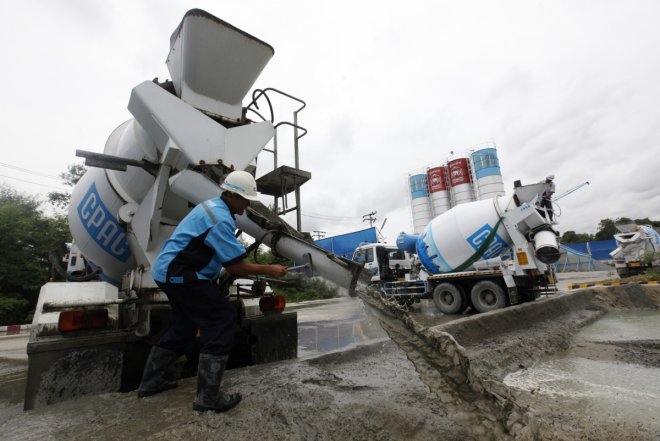
Manufacturing conditions of most of emerging Asia have been expansive in the first month of the year as the purchasing managers index figures released by IHS Markit on Wednesday.
India, Indonesia and Myanmar manufacturing PMI have risen past the 50-mark in January with the Myanmar reading hitting a 12-month high while Thailand held its position steady in the expansive region.
India's PMI rose to 50.4 from 49.6, Myanmar's up to 51.7 from 49.4, Indonesia up to 50.4 from 49.0 and that of Thailand stood at 50.6.
South Korea dropped further in the contraction region with the index down to 49.0 from 49.4 in December while the Philippines' indicator slipped for the fourth consecutive month to 52.7 from 55.7.
A reading above 50 indicates expansion while that below shows contraction in the sector.
India
The Indian manufacturing output increased during January on the back of rising order books, but failed to generate jobs in the sector, the research firm said.
Meanwhile, input cost inflation climbed to its highest mark since August 2014 and output charges were raised for the eleventh successive month.
"The Indian manufacturing economy recovered from the one-off downturn that hit the sector in December following the withdrawal of high-value banknotes," said Pollyanna De Lima, economist at IHS Markit.
IHS Markit has also forecast a 6.9% rise in GDP for FY16 and the same to accelerate to 7.4% in FY 2017.
South Korea
In the fourth largest economy of Asia, operating conditions worsened at faster pace, driven by quicker falls in both output and new orders while input prices increased at sharpest pace in almost six years, IHS Markit said.
Goods producers continued to cut back on staff numbers, and on the price front, input prices rose at the sharpest rate in nearly six years, leading to an increase in prices charged.
"Cost inflationary pressures accelerated to a near-six year high, with many panellists blaming the unfavourable exchange rate as the key factor," said Amy Brownbill, Economist at IHS Markit.
Thailand
New orders and purchasing activity have expanded at slower rates in January while output growth has accelerated, IHS Markit said. Rising inflation has prompted firms to front-load orders and purchases, and consequently, staffing numbers have increased to the fastest on record.
Thailand's manufacturing sector strengthened further in January, and it has allayed the concerns that the December upturn may be short-lived while positioning the Thai manufacturing industry on a stronger footing at the start of the year, Markit analysts said.
At the same time, the research firm also noted that a study of the sub-indices has shown that the domestic manufacturing industry continued to face headwinds in the coming months
Philippines
Philippines manufacturing sector has expanded in January but it was at a noticeably slower rate due to further growth slowdowns in both output and new orders, IHS Markit said.
Slower expansion has led to keener cost management amid ongoing inflation. Firms barely added to their staffing levels, partially due to spare capacity, and reduced growth of input buying and inventory accumulation, the research firm said.
Companies also faced higher input costs, prompting them to raise their own prices further. However, business expectations for output over the next 12 months remained high.
"Encouragingly, manufacturers' sentiments for the year ahead remained high, buoyed by expectations of greater demand, expansion plans and improved marketing strategies. This suggests that the current slowdown could be temporary," said Bernard Aw at IHS Markit
Myanmar
Myanmar's manufacturing sector has returned to growth at the start 2017 after having deteriorated slightly in December and the improvement in business conditions was supported by growth in output, new orders and employment, IHS Markit said.
However, supply chain pressures persisted while firms maintained stock reduction policies. And on the price front, higher input costs led Myanmar's goods producers to increase selling prices further.
However, analysts at the research firm have raised some concerns.
"Survey data unearthed a few concerning areas within the sector. Firstly, outstanding business levels continued to deteriorate at a substantial pace, offering signs that jobs growth could slow or reverse in coming months," said Samuel Agass, Economist at IHS Markit.
Indonesia
Indonesia's manufacturing industry improved in January helped by a rebound in new work intakes but strong cost increases restricted companies' purchasing activity and led to further job shedding.
At the same time, business confidence regarding the 12-month outlook for production have improved, IHS Markit said.
"Looking ahead, the trend for trade will remain challenging given so much uncertainty surrounding the global economy. On the other hand, recent moves by Bank Indonesia to lower interest rates are likely to fuel consumer spending," said Pollyanna De Lima, Economist at IHS Markit.









